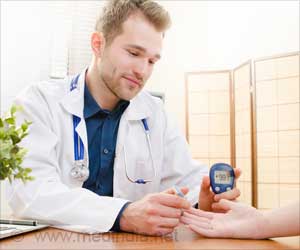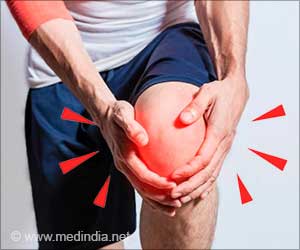Type 2 diabetic patients who use commonly prescribed antibiotics, antipsychotics, and prokinetic drugs have a high risk of sudden cardiac arrest.

Annual Meeting of the European Association for the Study of Diabetes (EASD)
Go to source).
Type 2 Diabetes Flares Sudden Cardiac Arrest
Sudden cardiac arrest (SCA) is a leading cause of death. The condition, in which the heart suddenly stops pumping blood, is responsible for up to 50% of cardiac deaths and 20% of mortality in high-income countries.‘General physicians need to be aware when prescribing prokinetics, antipsychotics, and antibiotics to type 2 diabetic patients, since they increase the risk of sudden cardiac arrest. #type2diabetes #commonprescription #cardiacarrest’





People with type 2 diabetes (T2D) have a two-fold increased risk of SCA. However, SCA is still difficult to predict, particularly in those without a history of cardiovascular disease (CVD).Peter Harms, of Amsterdam UMC, Amsterdam, The Netherlands, and colleagues carried out a case-control study to assess which clinical characteristics in GP records are associated with SCA in people with T2D with and without a CVD history.
The study involved 3,919 individuals with T2D: 689 cases and 3,230 controls. The cases, of individuals who had a sudden cardiac arrest in the Dutch region of Noord-Holland from 2010-2019, were each matched by age, sex, and GP practice with up to five non-SCA controls.
Clinical measurements including blood pressure and blood glucose readings, medication use, and medical history for five years leading up to the case’s SCA were obtained from GP records. Measurements not recorded in the records were classified as “unknown”.
Several characteristics were associated with an increased risk of SCA in both people with and without CVD: history of arrhythmias (68% increase in the risk of SCA), unknown smoking behavior (40% increase), insulin use (138% increase) and QTc-prolonging prokinetic medication (66% increase).
Common Medications Can Be A Double-Edged Sword
Many common drugs, including some prokinetic, antibiotic, and antipsychotic medications, are associated with a change in the functioning of the heart’s electrical system known as QT-prolongation and are described as being QTc-prolonging. QTc-prolonging prokinetics include domperidone; QTc-prolonging antibiotics include marcolides and fluoroquinolones; QTc-prolonging antipsychotics include haloperidol.Advertisement
In those without CVD (337 cases/2,023 controls), low fasting glucose – an indication of too strict glycemic control (<4.5 mmol/mol: 150% increase), severely high systolic blood pressure (>180mmHg: 121% increase), low HDL cholesterol (<1.0 mmol/l: 35% increase), high LDL cholesterol (>2.6 mmol/l: 64% increase), QTc-prolonging anti-psychotic medication (187% increase) and QTc-prolonging antibiotic medication (66% increase) use were associated with SCA.
Mr. Harms adds: “GPs will already be aware that classic cardiovascular risk factors such as high blood pressure, raise the risk of sudden cardiac arrest in people with type 2 diabetes, however, the link with low fasting glucose and antibiotic, antipsychotic and prokinetic medication is less well-known.
Reference:
- Annual Meeting of the European Association for the Study of Diabetes (EASD) - (https://www.easd.org/annual-meeting/easd-2023.html)
Source-Eurekalert















